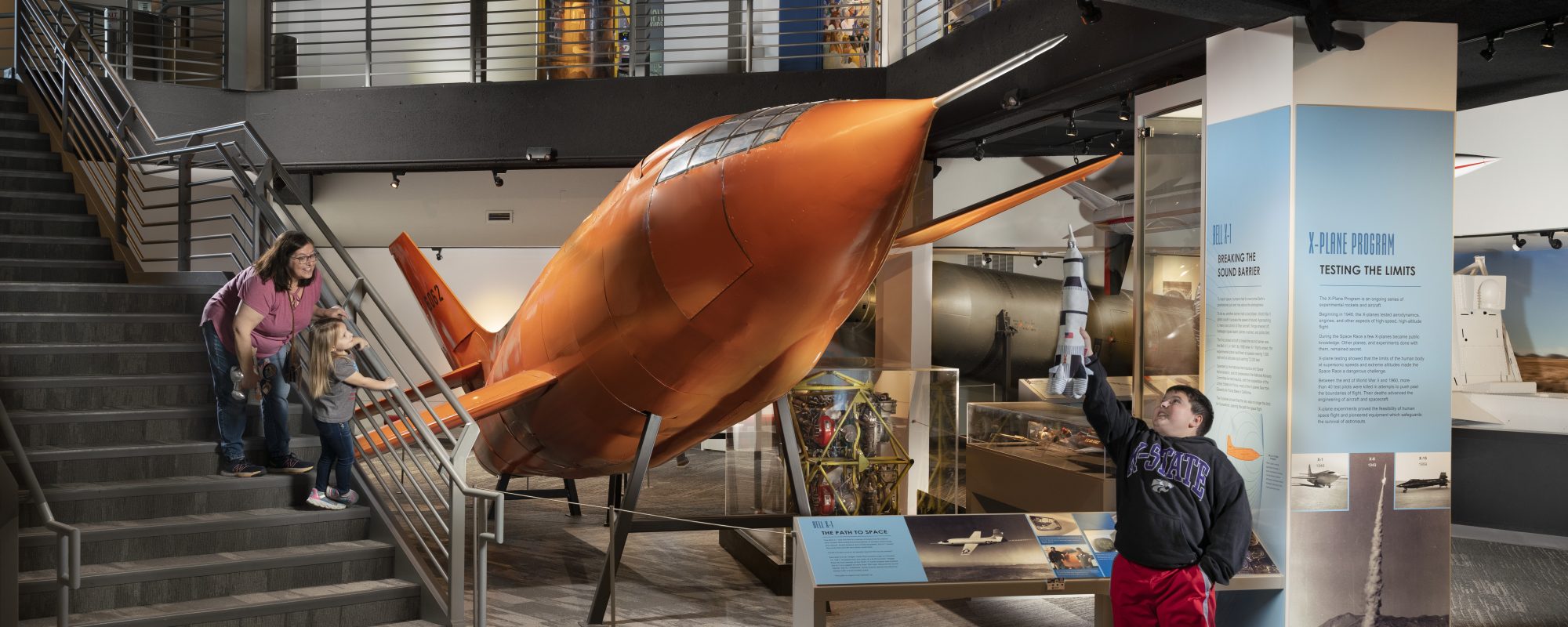Team members from NASA’s New Horizons mission to Pluto and the Kuiper Belt will be at the Cosmosphere in February for PlutoPalooza—a two-day celebration of exploration that features free public presentations, a star-gazing evening, a teacher workshop, and a chance to hear directly from mission scientists and engineers, two of whom have special hometown connections to Kansas.
On Wednesday, February 14, at 7 p.m., a lively TED talk-style presentation will include stories from the mission’s scientists and stunning images from the spacecraft’s flight through the Pluto system. Since this is Valentine’s Day, the researchers will explain just how the spectacular giant heart on Pluto was formed, and why they think the dwarf planet is still geologically active despite being so far from the Sun.
On Thursday, February 15, the Cosmosphere’s monthly Coffee @ the Cosmo 9 a.m. presentation will offer attendees the opportunity to chat informally with the NASA mission team members.
That evening, from 7 to 9 p.m., a stargazing event titled Starry Night: PlutoPalooza will take place at Hobart-Detter field in Carey Park with members of the New Horizons team and Science Educators from the Cosmosphere. Viewing equipment will be available.
For more information on these events, please contact the Cosmosphere Box Office at 620.662.2305 or 800.397.0330.
The New Horizons team who will be on hand to share both the science and behind-the-scenes personal stories of the mission will be:
GLEN FOUNTAIN served as the Project Manager for NASA’s New Horizons mission to Pluto from 2004 until 2016, at the Johns Hopkins University Applied Physics Laboratory (APL) in Laurel, MD. Glen received Bachelor’s and Master’s degrees in electrical engineering from Kansas State University in 1965 and 1966, respectively. He was a key part of the small team that began developing a Pluto mission concept in early 2001, led the engineering team during the initial work, and recruited many of the key engineers who later developed the actual mission. After launch, Mr. Fountain oversaw all flight operations, including the successful science campaign at Jupiter in February 2007, and guided the tasks that carried the mission through eight more years of flight and the eventual historic encounter with Pluto in July 2015. He has received numerous NASA group achievement awards, and in 2007 received NASA’s Exceptional Public Service Award. In 2015 he was presented with the AIAA/Space X Award for Technical Excellence. Glen maintains a home in Arlington, KS.
KELSI SINGER is a Research Scientist in the Boulder office of Southwest Research Institute (SwRI) and a Co-Investigator on the New Horizons Geology and Geophysics team. Her research involves geological mapping of planetary surfaces, including the icy Moons of Jupiter and Saturn, Earth’s Moon, Pluto, and Charon. She studies many different geological features, including faults, impact craters, cryovolcanoes (ice volcanoes), and giant landslides. She joined New Horizons as a postdoctoral researcher in 2014 and is helping with observation planning for the upcoming encounter with the small Kuiper belt object known as “MU69.” Dr. Singer was part of the successful July 17th 2017 occultation campaign in Argentina which captured the small, faint shadow of MU69 as it passed in front of a distant star. (As mentioned previously, Kelsi lived in Topeka KS through 9th grade.)
JOEL PARKER is a Director in SwRI’s Boulder office, which is ground zero for the New Horizons science team. He started his astronomical life studying massive stars in other galaxies, but eventually brought his attention closer to home, using big telescopes on the ground and orbiting the Earth to observe the stuff that zips around our neighborhood: comets, asteroids, the Moon, and – of course – Pluto and its relatives in the Kuiper Belt. Joel is Project Manager of the spacecraft’s “Alice” spectrograph, which uses ultraviolet spectra for astronomical studies including analysis of the surfaces and atmospheres of Pluto and its Moons. He is a musician and actor, and a producer and host for the science show “How on Earth” on radio station KGNU in Boulder/Denver.
ALICE BOWMAN, the New Horizons Mission Operations Manager (“MOM”) at APL, leads the team that controls the spacecraft, now more than 3.7 billion miles from Earth. She’ll describe the teamwork, practice and resilience under pressure that has led to New Horizons’ continuing success. Her love of space exploration started as a child, saving newspaper clippings of the Moon landing and other planetary visits. She pursued a degree in Physics and Chemistry to satisfy her curiosity of figuring out how things work and how to fix them. Prior to her job operating spacecraft, she worked in the fields of computer modeling, drug research (at the California Institute of Technology), and long-wave detector research, in part for the Pentagon’s U.S. Space Command. In her time away from work, she and her husband lead a community jam session twice a month and play in a bluegrass band.


